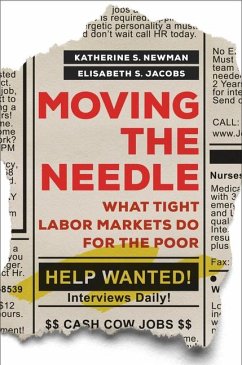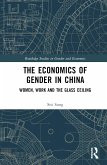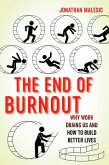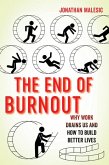"Combining expert qualitative craft with quantitative evidence, Moving the Needle provides ideas, insights, and answers regarding how and why high-pressure labor markets reduce joblessness--and how social policy can prolong those benefits even when the pressure abates."--David Autor, Ford Professor of Economics, MIT "One of the few accounts of what happens when jobs are ample and wages are rising. The authors show us how tight labor markets create benefits for all workers, including those often excluded from policymaking. This book is a call to enact policy that builds a stable and fair economy."--Mary Kay Henry, President, Service Employees International Union "Moving the Needle makes the case--through exhaustive interviews with employers, intermediaries, and workers in two communities--for a set of urgent policy actions in the wake of the COVID-19 pandemic to provide low-wage workers with ladders of opportunity that lead to self-sufficiency."--Alicia Sasser Modestino, Professor of Economics at the School of Public Policy and Urban Affairs, Northeastern University "Moving the Needle explores the actual institutions of the labor market, providing crucial insight into how job hunting, hiring, training, and retention work for low-income people. By bridging the chasm between macroeconomics and poverty, this book lays to rest decades of ill-conceived efforts to rectify behavior and instead focuses attention where it is needed: on the ready availability of good jobs for improving the lives of workers and their families."--Michael Ash, author of Shadow Networks: Financial Disorder and the System that Caused Crisis








